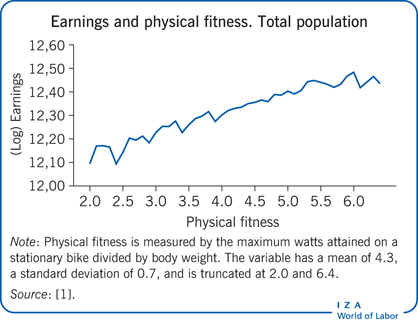Elevator pitch
A productive workforce is a key objective of public economic policy. Recent empirical work suggests that increasing individual participation in sports and exercise can be a major force for achieving this goal. The productivity gains and related increase in earnings come on top of the already well-documented public health effects that have so far provided the rationale for the major national and international campaigns to increase individual physical activity. The deciding issue for government policy is whether there are externalities, information asymmetries, or other reasons that lead individuals to decide on activity levels that are too low from a broader social perspective.
Key findings
Pros
Sports and exercise improve physical and mental health.
Sports and exercise can substantially increase earnings.
As they are time consuming, sports and exercise may crowd out non-productive uses of time (such as watching non-educational TV).
Sports and exercise increase human capital in several dimensions, including soft skills (team work, self-discipline, endurance, stress relief, and self-confidence).
Sports and exercise increase individual well-being.
Cons
Sports and exercise lead to injuries.
The effects of increased sports and exercise on employment, unemployment, and working time are not clear.
Sports and exercise are time consuming and may crowd out productive and utility-enhancing uses of time (such as education and work time).
The relative importance of the different channels that are responsible for the positive effects of sports and exercise is not well understood.
The credibility of empirical studies on the effects of sports and exercise is sometimes questionable.
